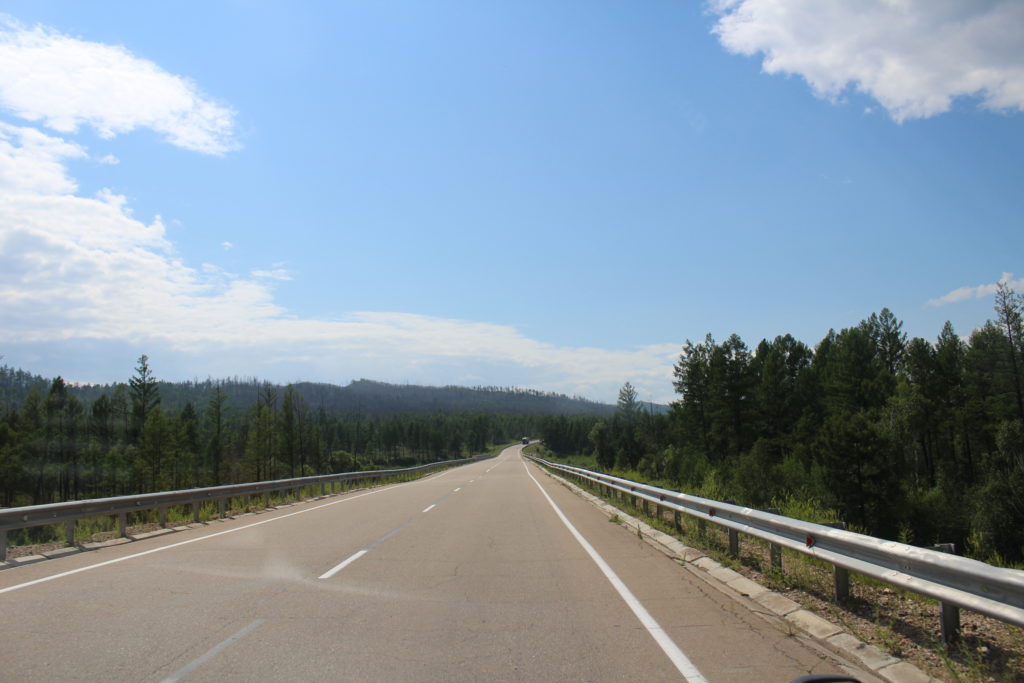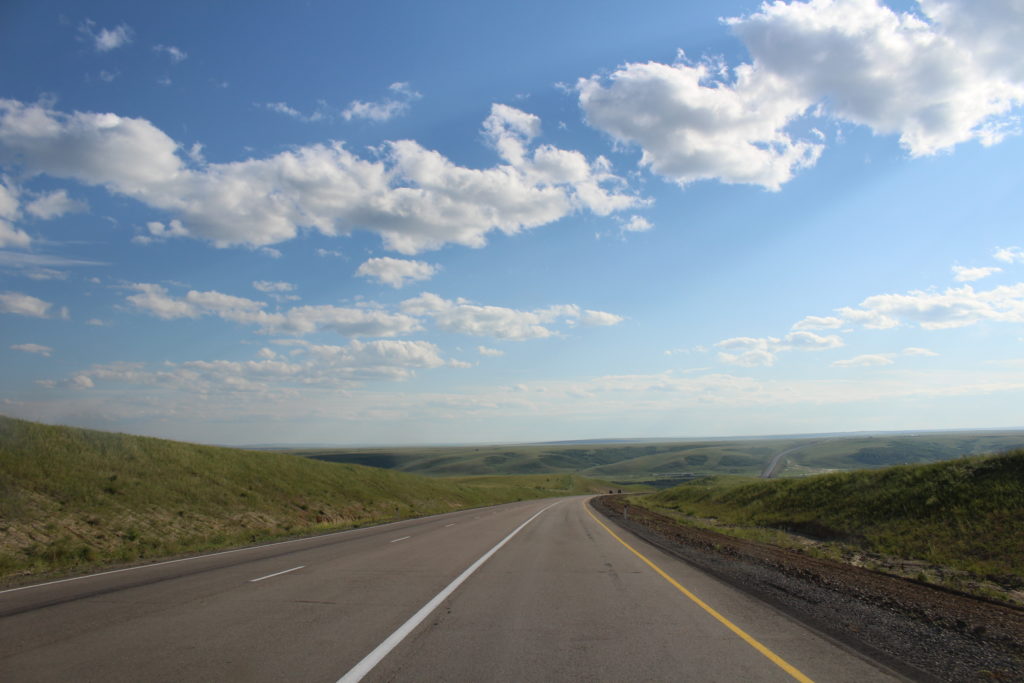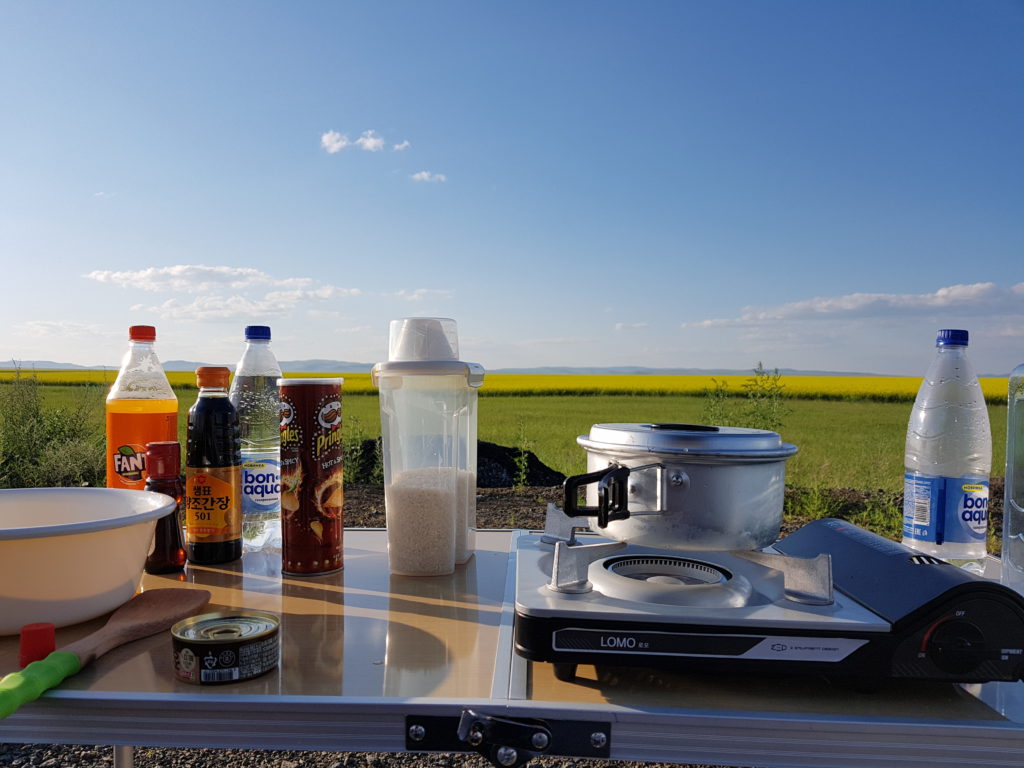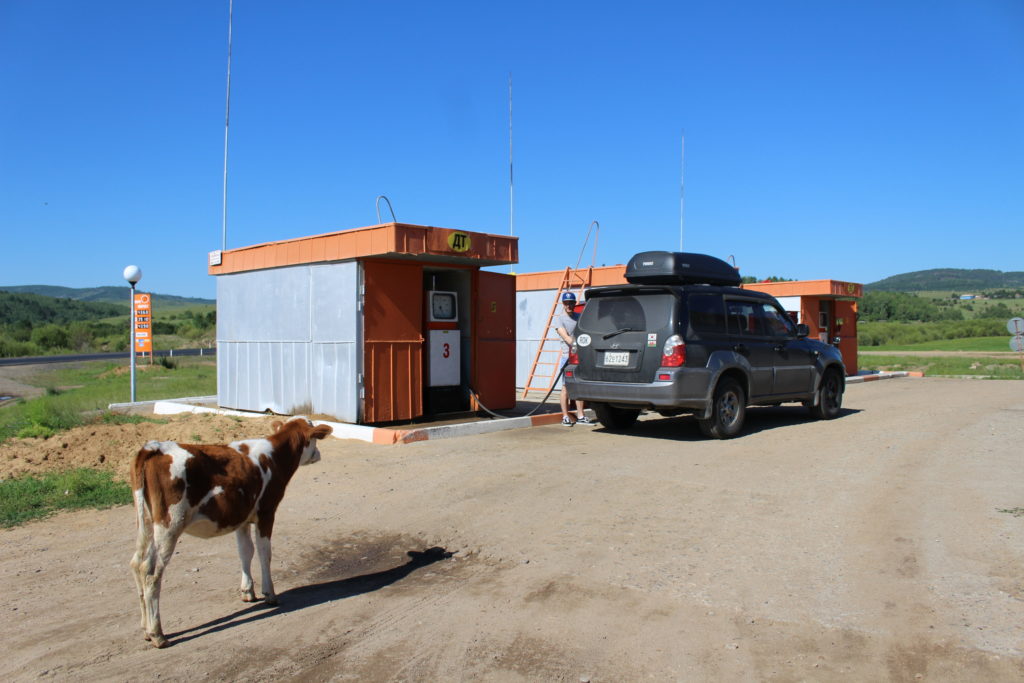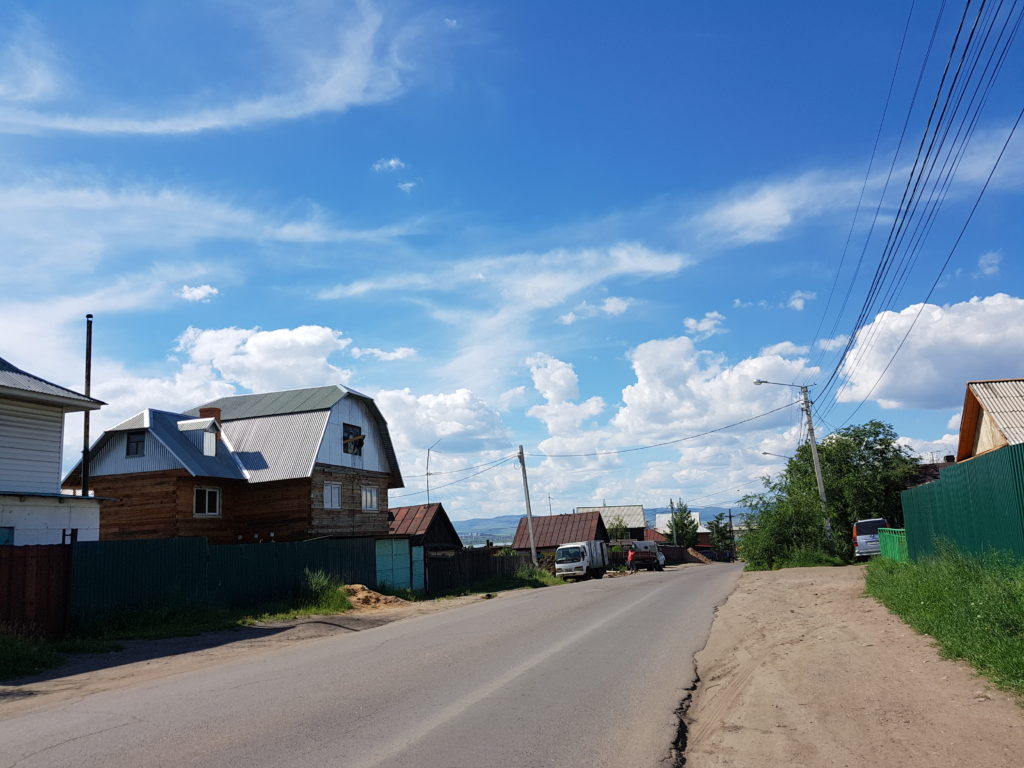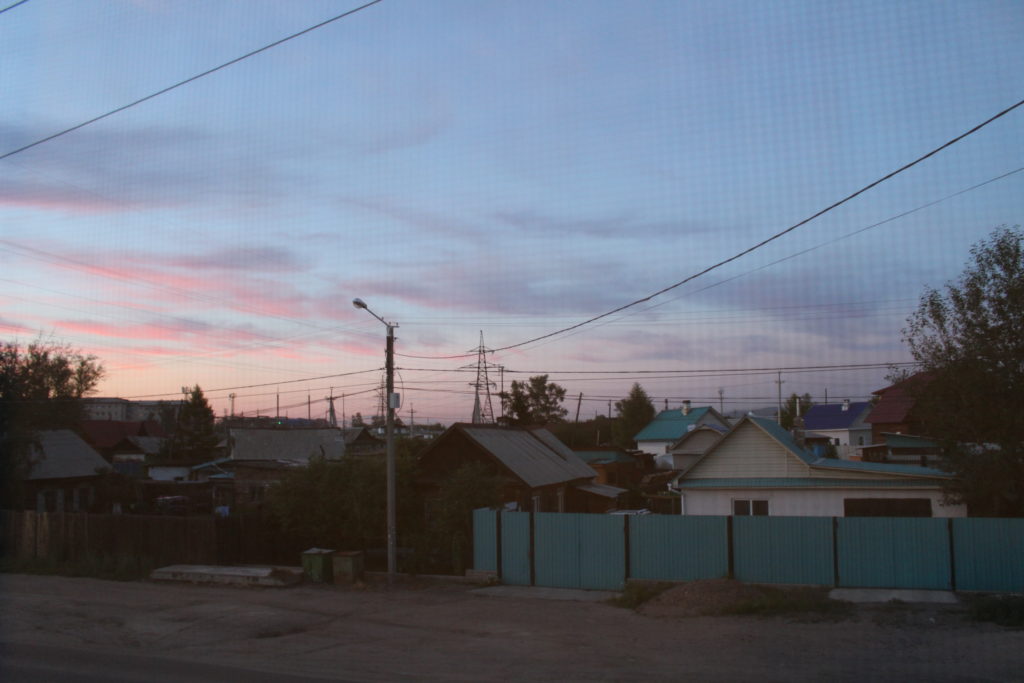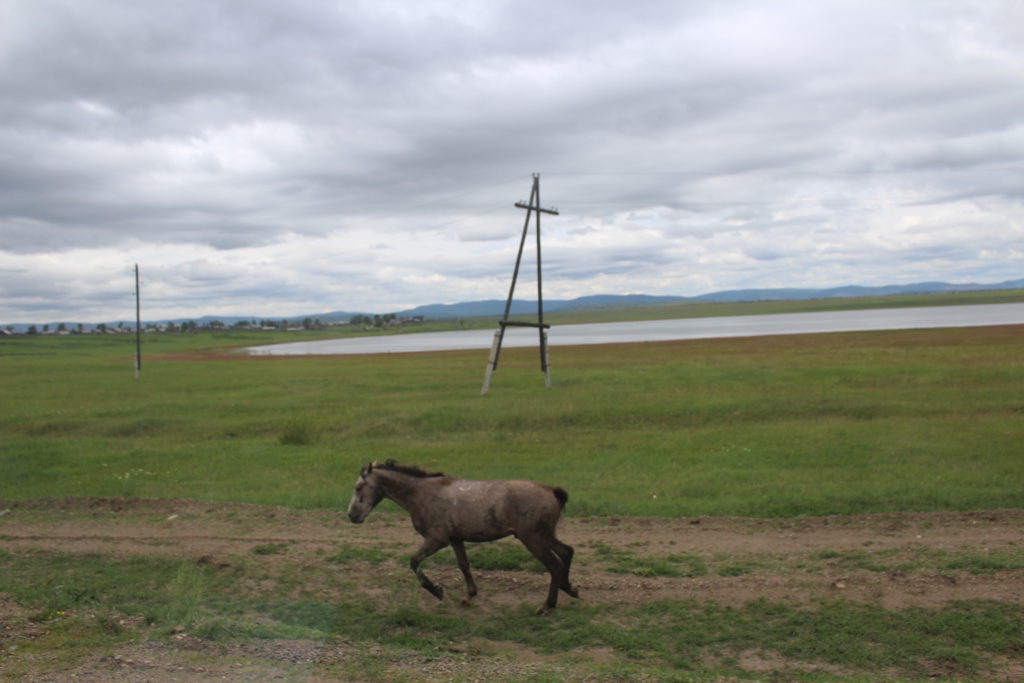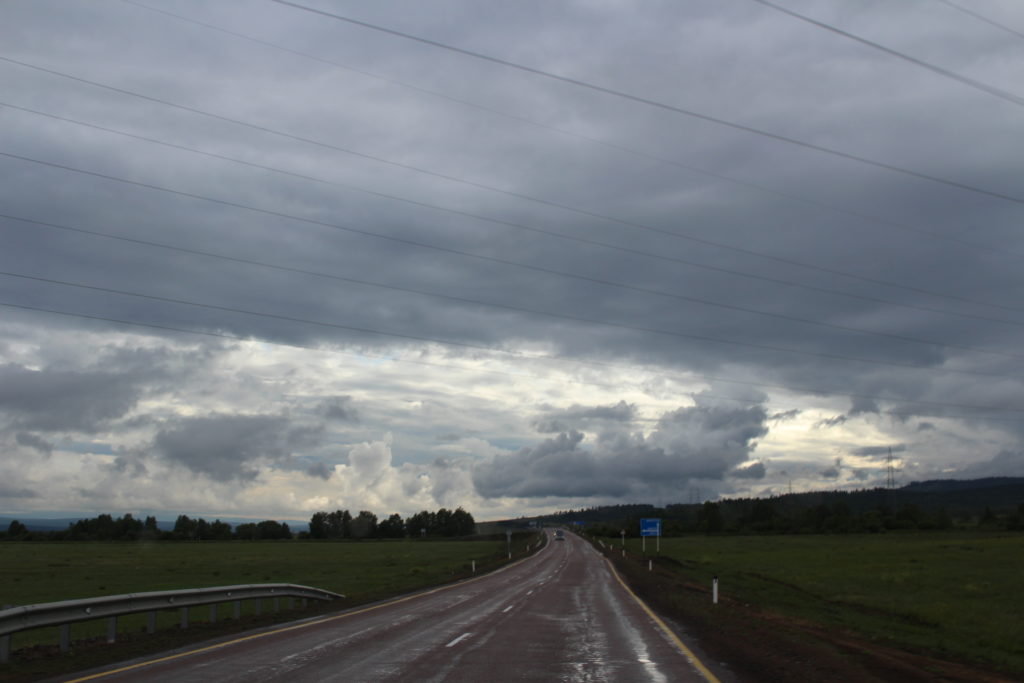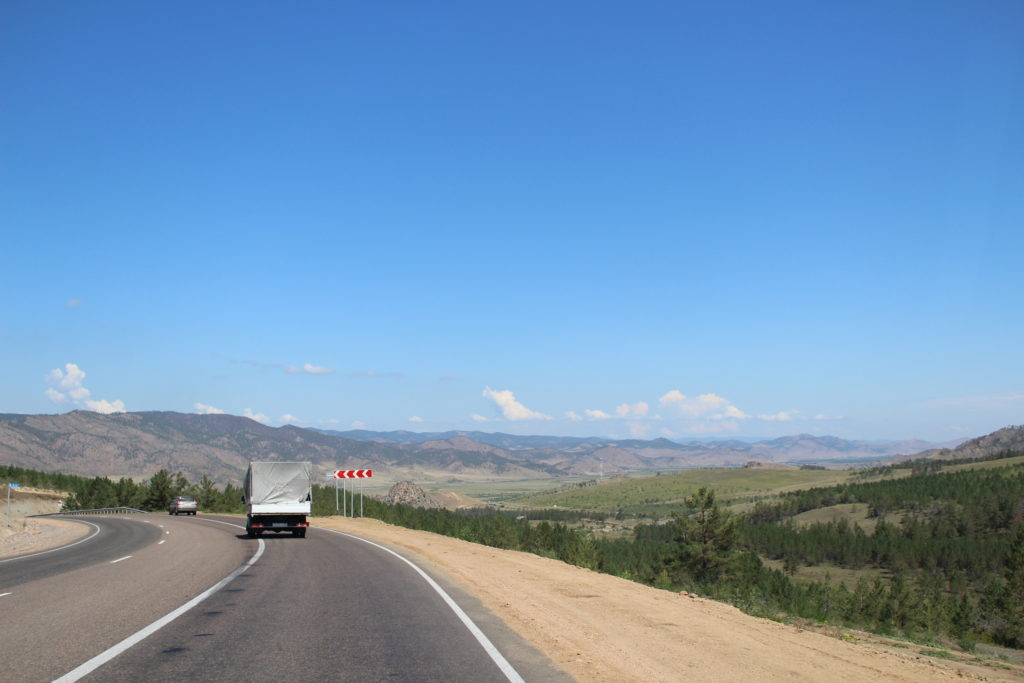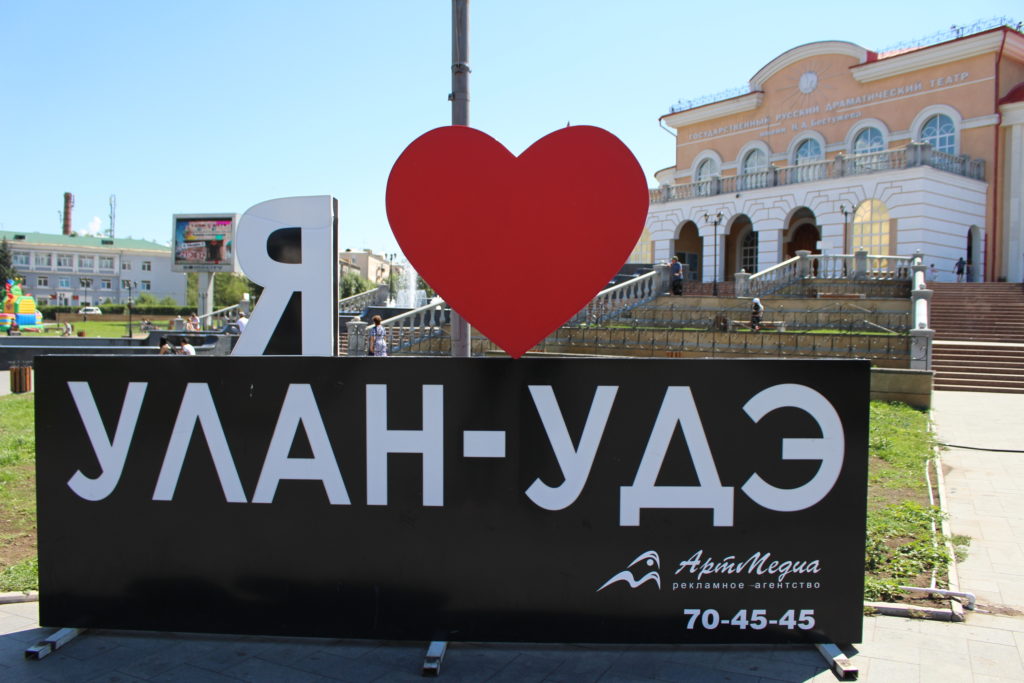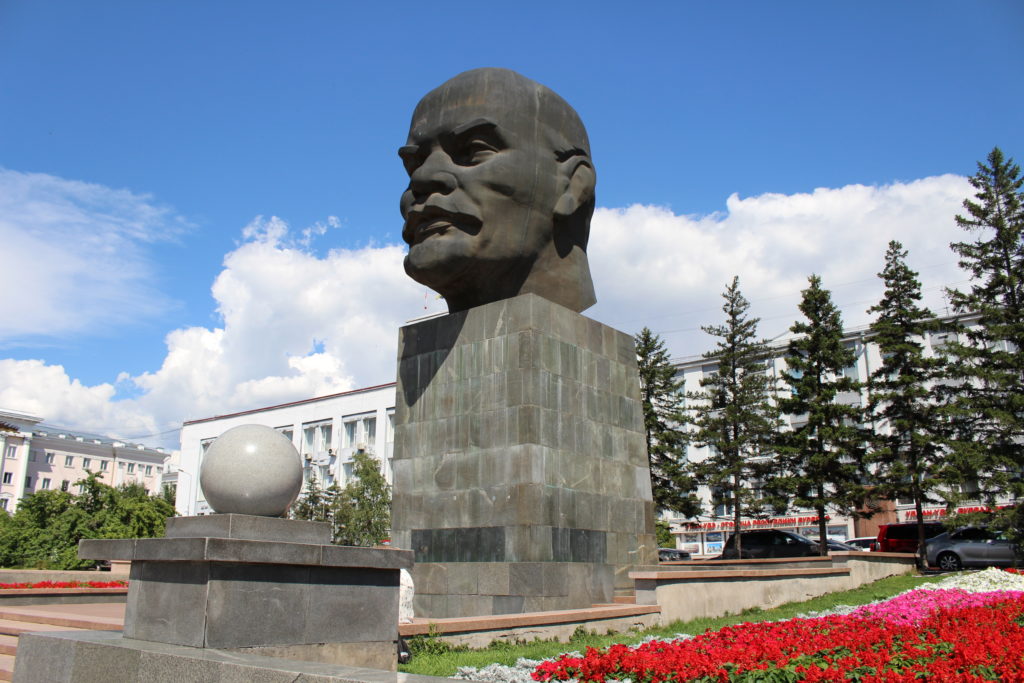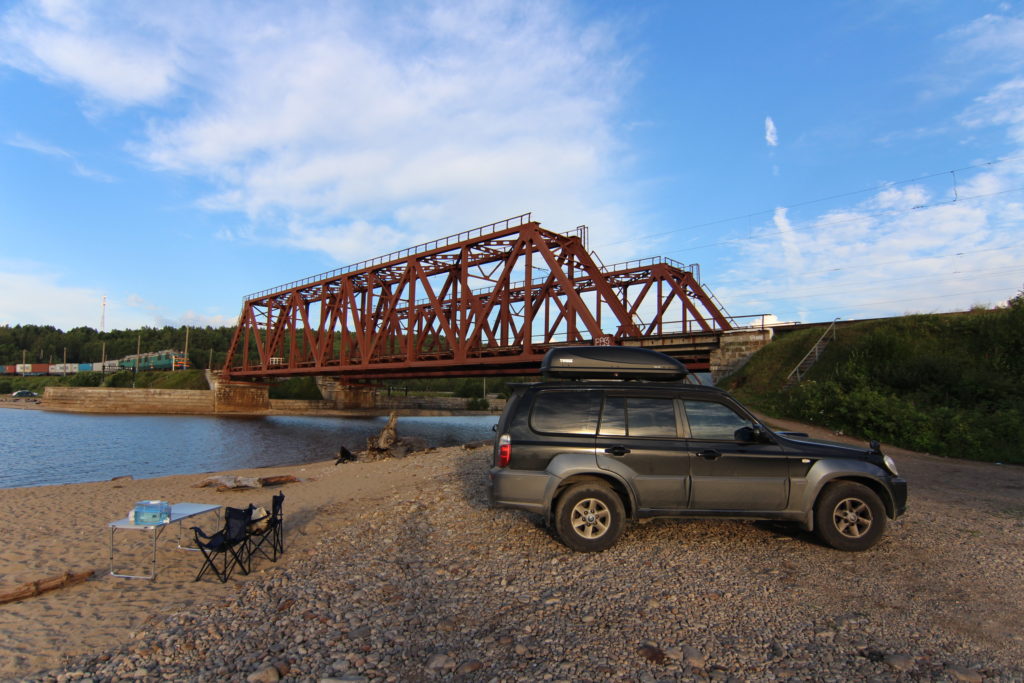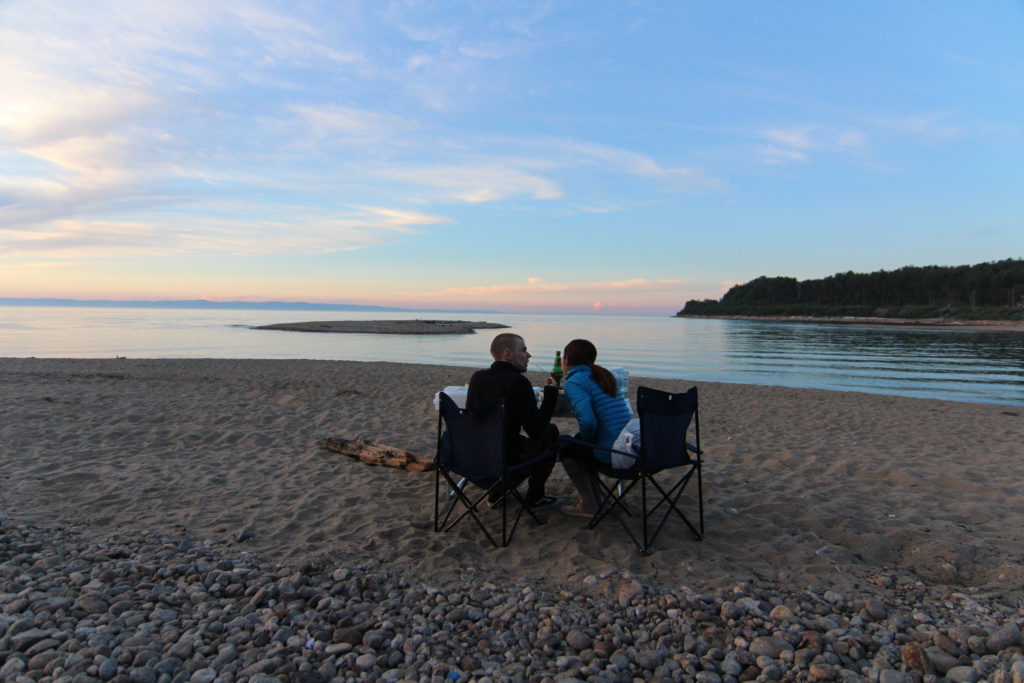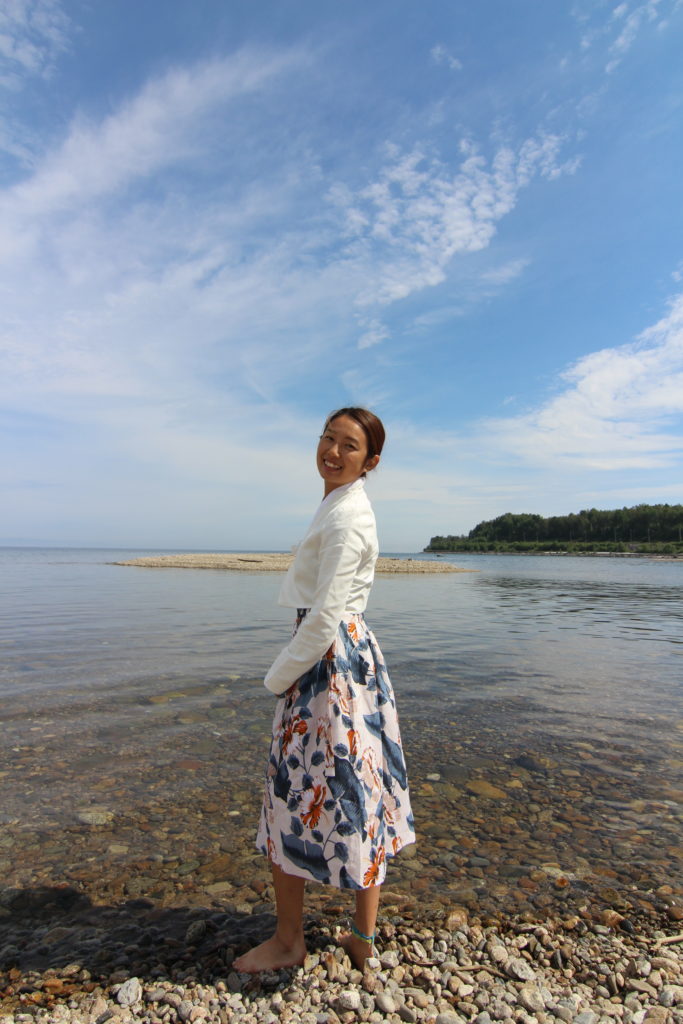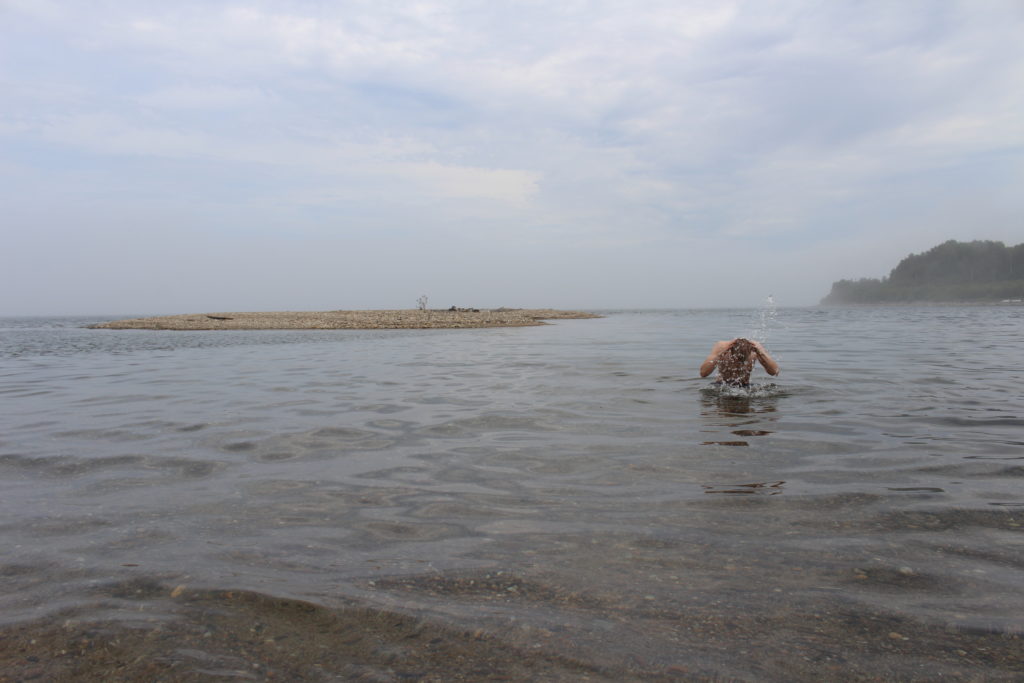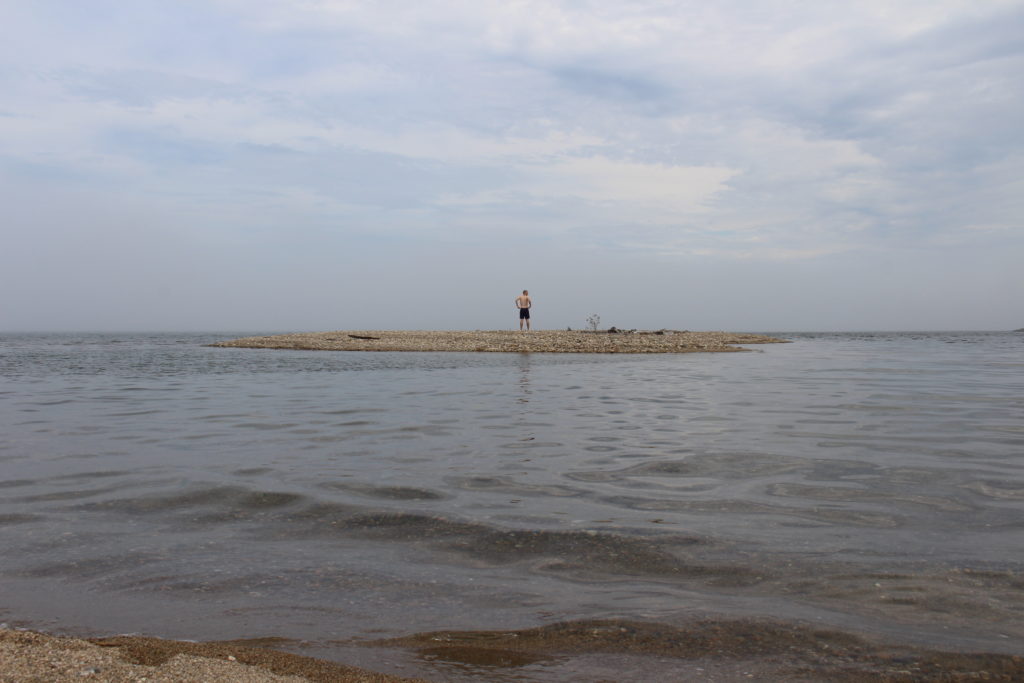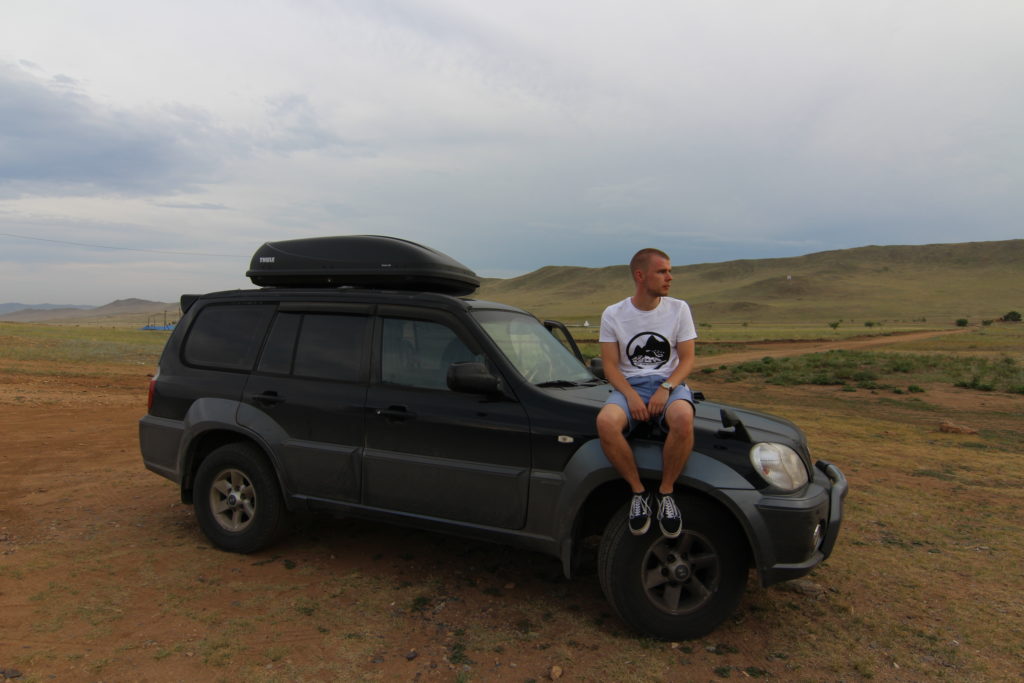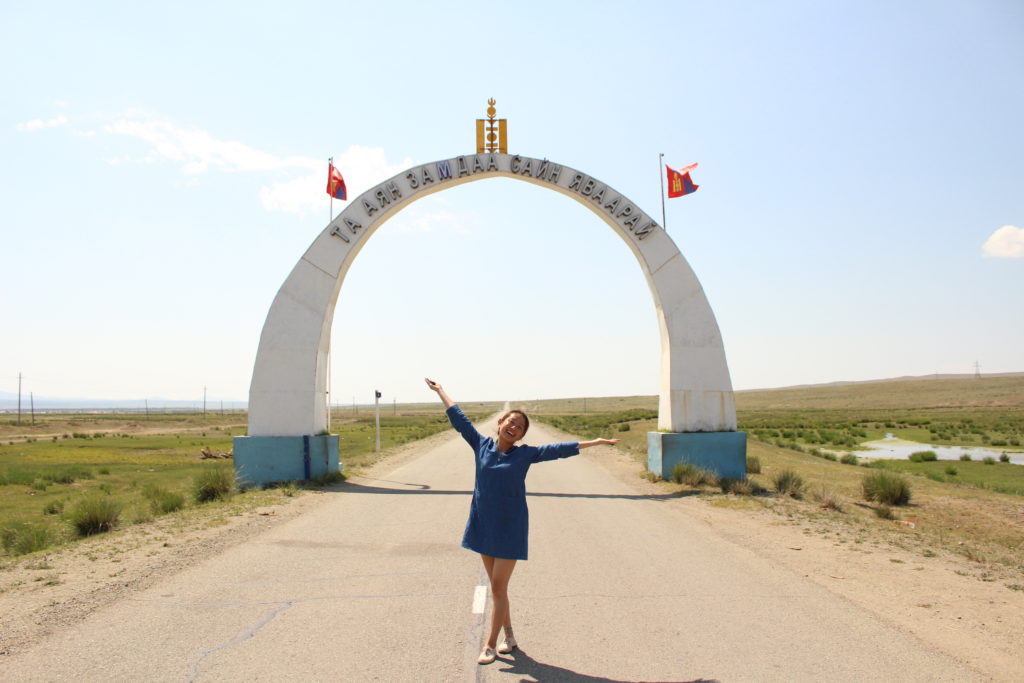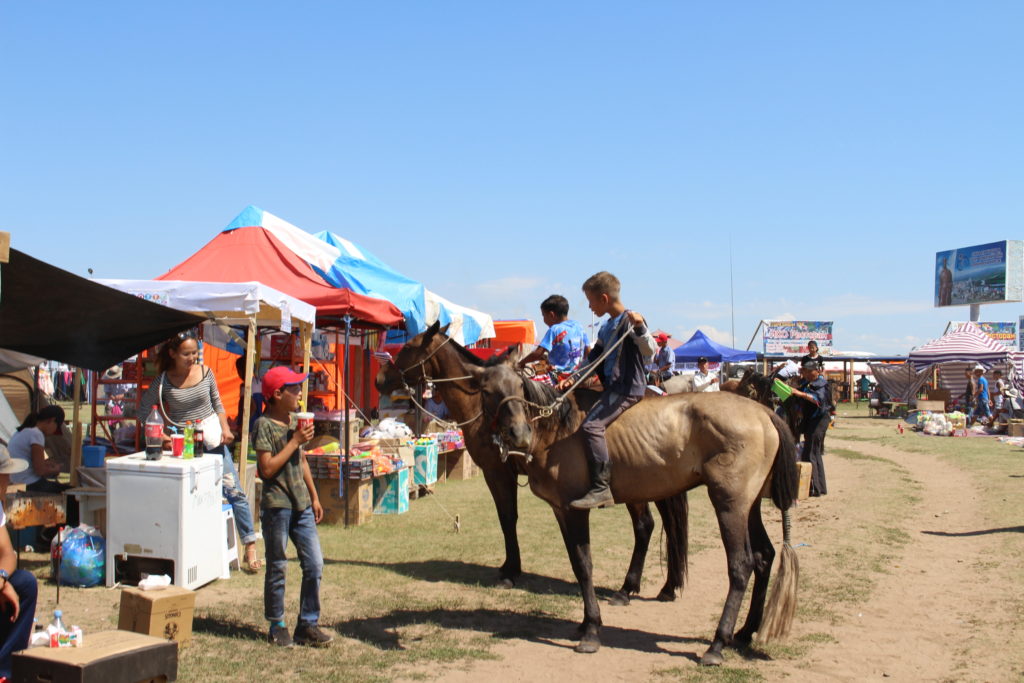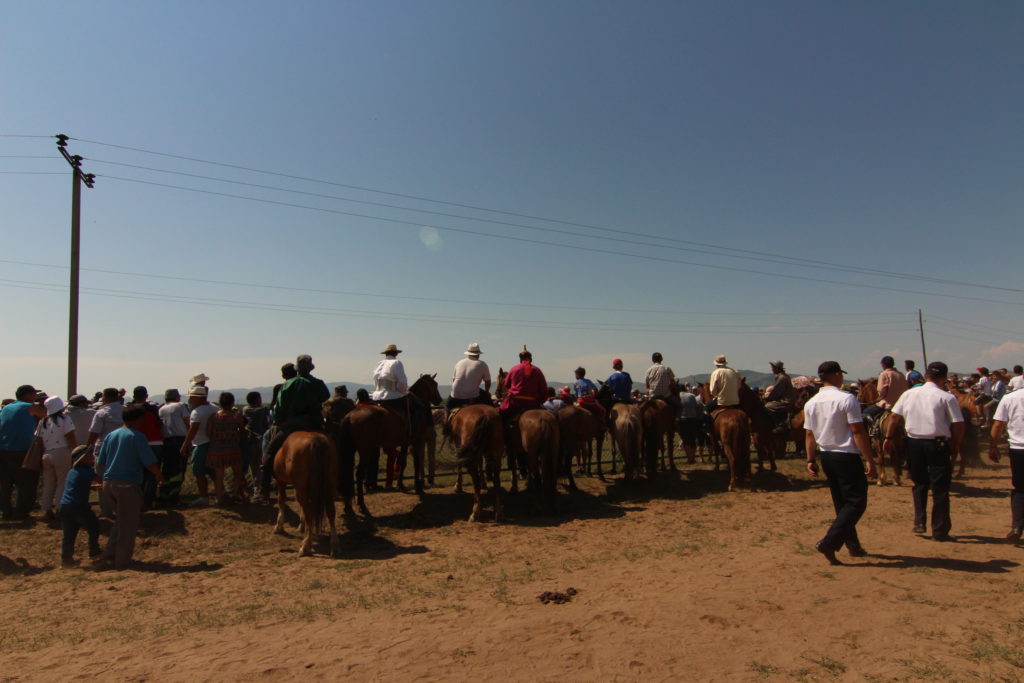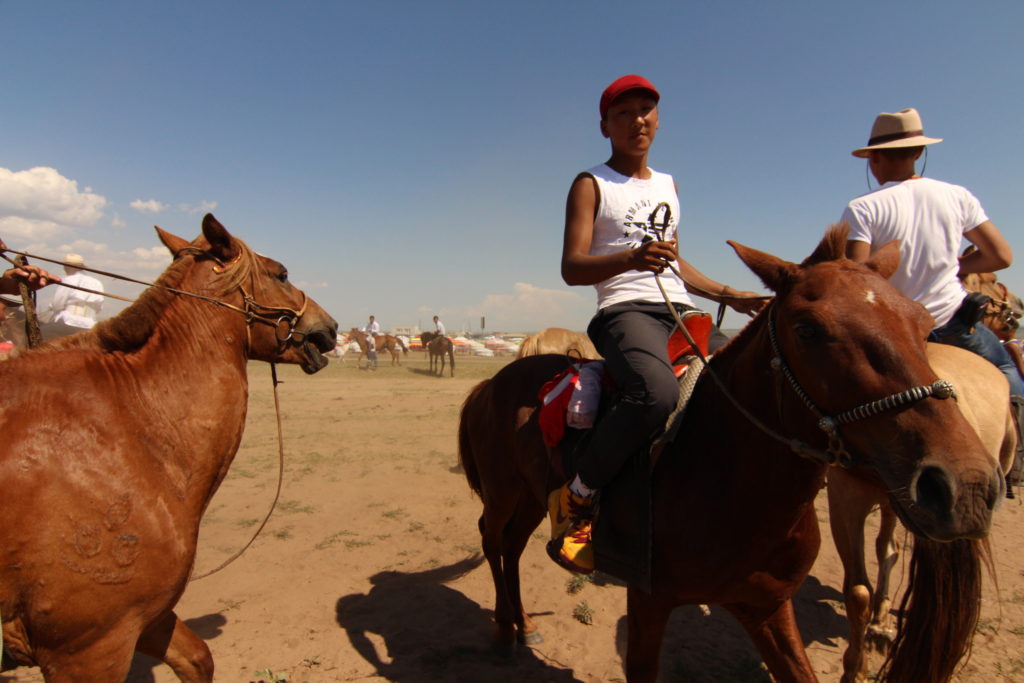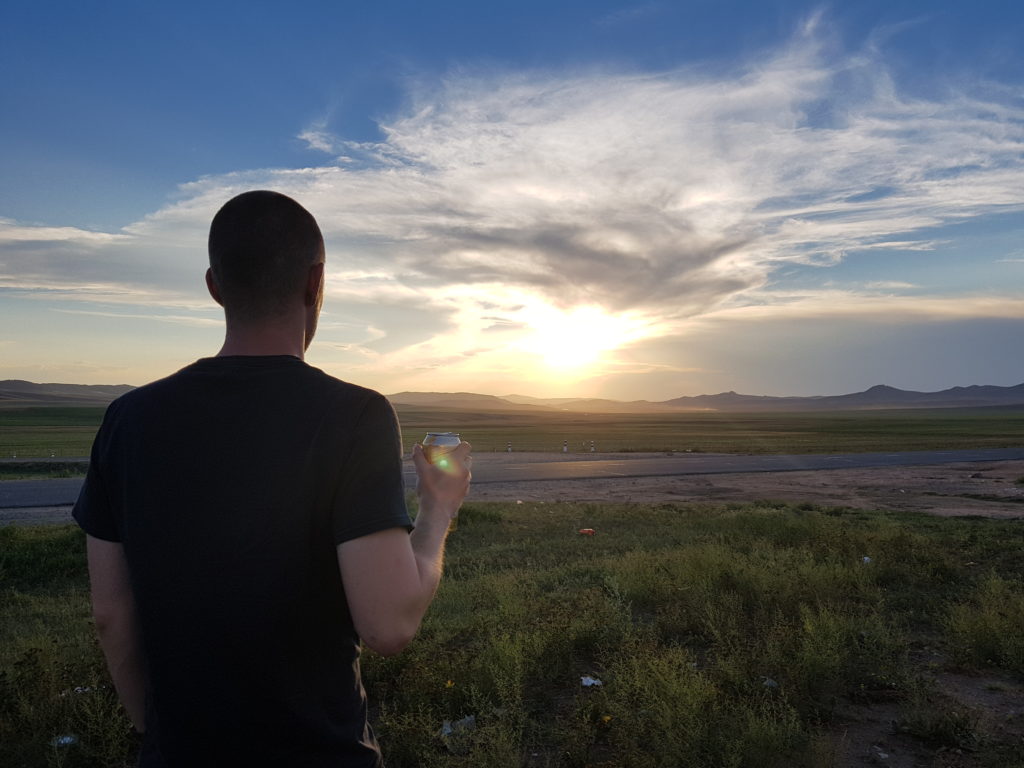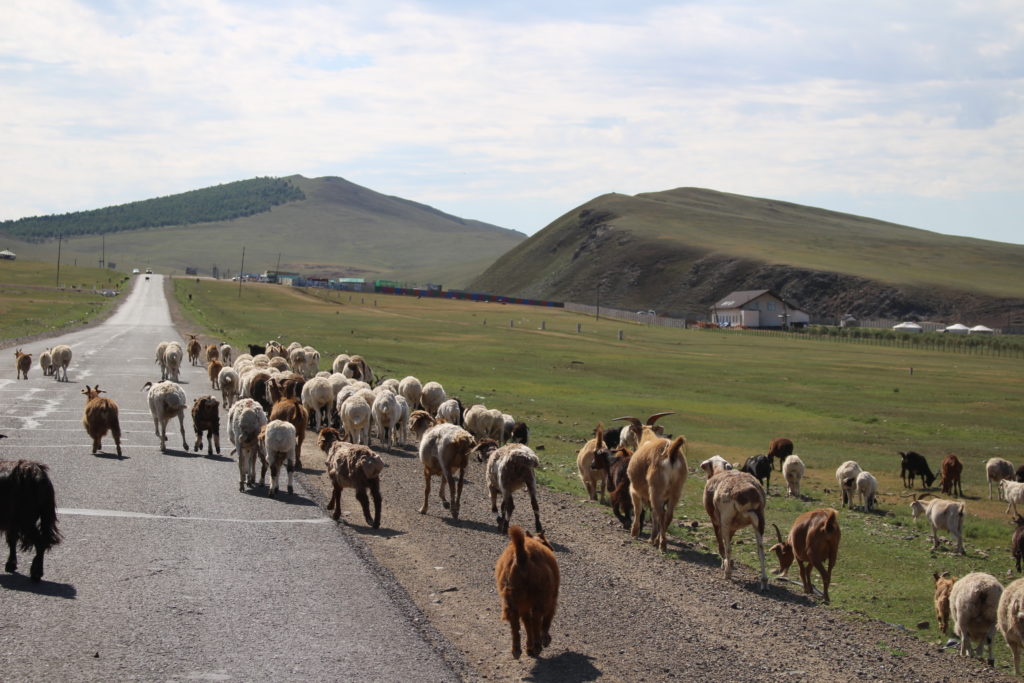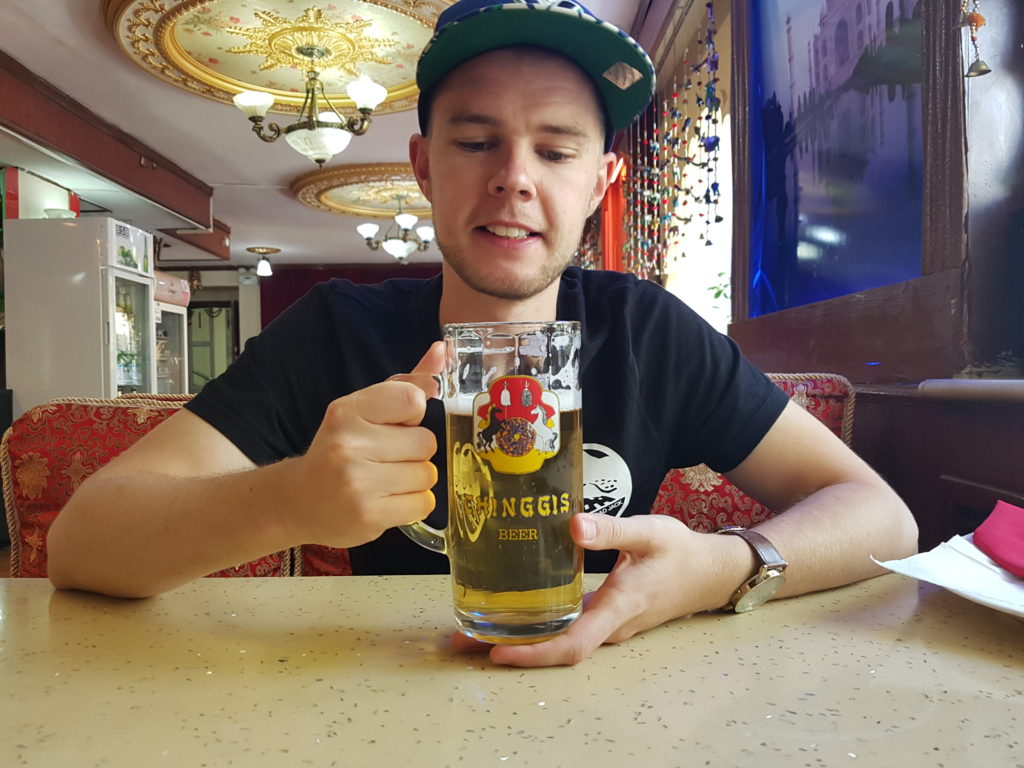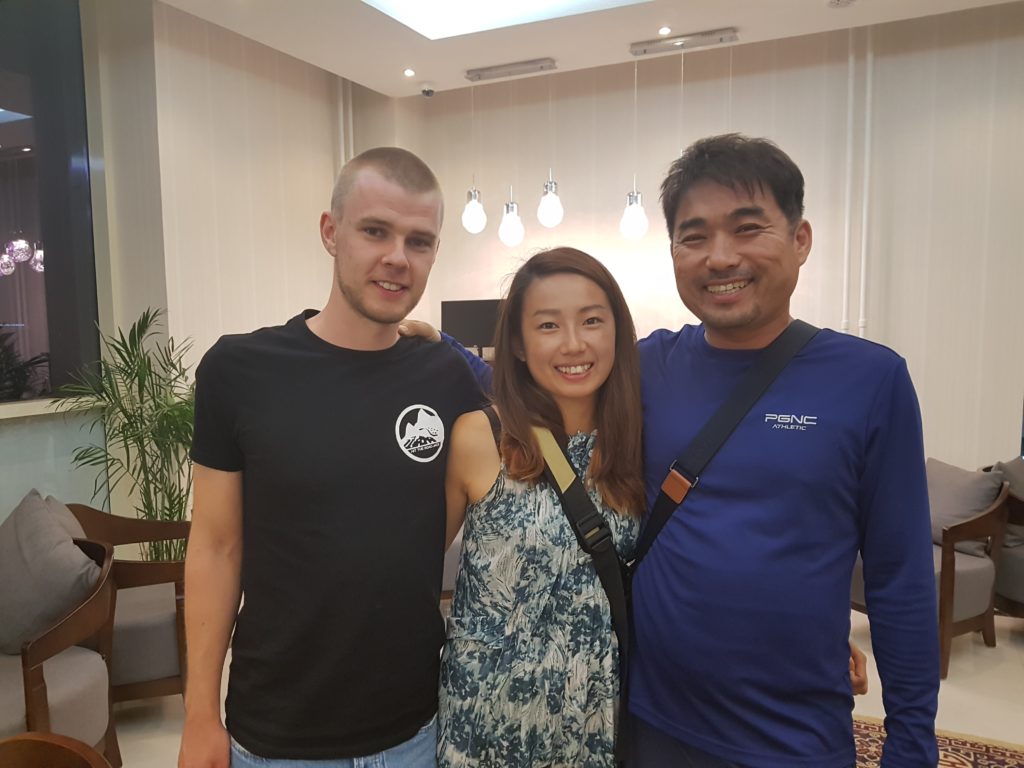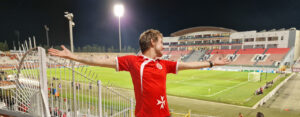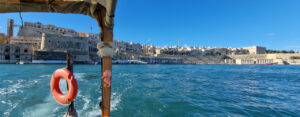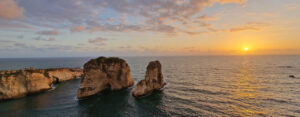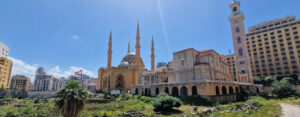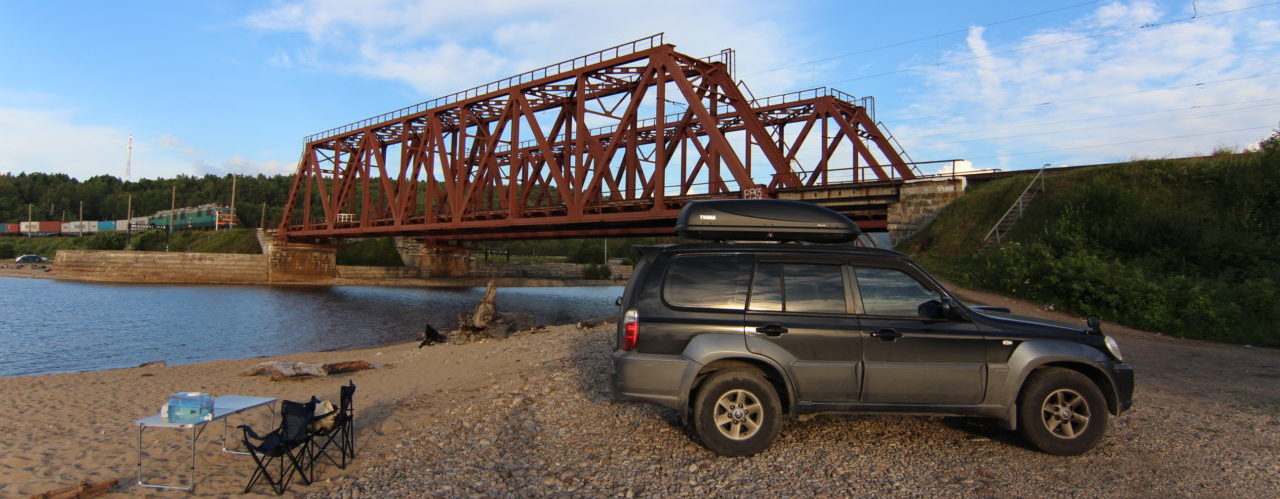
Putin up with Siberia
Last week, Yugyeong and I arrived on the shores of Russia ready to begin our mammoth road trip. Seven days later and the monotony of the forests of Eastern Siberia have started to take their toll. This week, we leave the damp, dark forests far behind as we reach the Russian steppe on route to the deepest lake in the world, before heading South towards our second nation.
Day 8 – Oldoy, Russia to Chernyshevsk, Russia
Another silent night in the endless Siberian woods, apart from the hourly whistle of the Trans-Siberian Railway nearby. Day three on our way to Chita and we were fully preparing for another day of monotonous landscapes and bumpy roads. That proved to be the case until the early evening when at last we poked our head out of the interminable forest and entered the wild expanse of the Russian steppe. Almost instantly, we had entered a completely new climate. The humidity dropped and the clouds cleared. The woods have also disappeared, replaced with lush, flat planes as far as the eye can see. Maybe a sample of Mongolia to come…
Day 9 – Chernyshevsk, Russia to Chita, Russia
The steppe, although much more pleasing on the eye, is far colder at night than the forests prior. The clear, star-filled sky made for a near-freezing morning, making us even more keen to get on the road and finally finish our four-day-drive to Chita. We had been warned of the apparent dangers of this city by a Russian man on the ferry from Korea and, since it has been a week since our last shower, we felt one night in a hotel would be a good idea.
Chita feels like a slightly-more-modern Spaghetti Western town, full of garages and workshops and stores selling supplies for the road. Every house has corrugated-iron sheeting surrounding it whilst every vehicle on the pothole-riddled ‘roads’ look like they were used in a Mad Max movie – patched together with parts that weren’t designed for their purpose. It’s an intimidating city, and reminded me a little of Detroit – it had clearly seen better days.
However, from the comfort of our secure hotel room we could wash, scoff on pizza and watch several hours of Russian synchronised swimming – the only channel available to us. We are thoroughly savouring all modern amenities before we get back on the road tomorrow morning.
Day 10 – Chita, Russia to Tarbagatay, Russia
After having our photo taken with the strange-but-friendly owner of the hotel, I politely said “see you next time”, knowing that something would have to go drastically wrong in my life for me to end up back here. We made a quick exit from Chita, and re-joined the main road with our sights set on Ulan Ude, six hundred kilometres further West.
After burning my recently-bare head yesterday, I was in no danger of a repeat today. But even grey and miserable weather all afternoon, as well as Yugyeong having a fever, couldn’t dampen our spirits as we are making good progress through the drearier part of our journey. One point of interest though was the immense convoy of Russian military vehicles that passed us in the evening, about one-hundred strong, heading East. Ominously, I doubt such a large group would be mobilized simply for drills, although I’m not a military expert. With roads worsening once more, we stopped about two hundred kilometres South-East of Ulan Ude and called it a day – shattered.
Day 11 – Tarbagatay, Russia to Tankhoy on Lake Baikal, Russia
An early start and we joined the main road along with a fleet of Russian tourists all headed, by the looks of their Summer attire and boats in tow, to Lake Baikal. We were too, but we had a luncheon stop-off in Ulan Ude to make. As far as Siberian cities go, in my limited experience, this one was rather pleasant – despite the eighteen-kilometre dirt track to get to the city centre. We stopped in another ‘Lenin Square’ (every city seems to have one) and took a few photos of his large head – in fact, his largest head. Being so close to Mongolia and China has obviously influenced the remarkable ethnic diversity of the city. An interesting change from what we have experienced so far in Russia.
We made the relatively short trip to the lake, naively believing that the most prominent tourist attraction for thousands of miles would be convenient to access and appreciate. Despite Russia’s substantial development of the tourism sector over the last decade, there are still many places within their vast borders that are not exactly tourist-friendly. The South-Eastern shore, at least, of Lake Baikal is one of those places. Not that I want a geographical phenomenon such as this to be overwhelmed by Hawaiian-shirted tourists in sixty-foot Winnebagos, but to be able to get a good look at it, and to camp alongside it would be nice.
Luckily, after a couple of hours searching, we gambled down a small lane, slipped Toby underneath a railway bridge, and discovered our own personal coastline. Joy of joys! After four thousand kilometres of dodgy roads and endless forests, we had made it to our first bucket list landmark. Being able to write, cook our dinner, and sleep on a beach in front of Baikal is something I won’t forget anytime soon.
Day 12 – Tankhoy on Lake Baikal, Russia to Nur-Tukhum, Russia
Along our eleven-day journey to the lake, I have learned a plethora of Baikal facts, so here goes:
1. With a depth of 1,632m, it is the deepest lake on the planet
2. It is also the oldest, estimated to be between 25-35 million years old
3. Baikal has the third largest island lake in the world
4. Around 20% of all freshwater on earth is in the lake, and it is the purest you can find
5. Locals believe that swimming in Baikal will prolong their lives for an extra five years
What better way to start the day than to put fact number five to the test and take a dip in the lake. After building up the courage for quite some time – the lake freezes over in Winter and is not much warmer now – I eventually went in and waded across to a small island about fifty metres from the shore. I certainly hope it will add an extra five years to my life, because as of right now, I feel like it has shortened it considerably!
After eating lunch by the lake, we decided that we should start the next major leg of our journey: crossing the wild expanse of Mongolia. But before we can do that, we need to drive eight hundred kilometres South to the capital Ulaanbaatar, crossing our first land border of the expedition. Having camped an hour’s drive from the crossing, we were joined by a group of Ulaanbaatar natives, one of which spoke very good English. They divulged a lot of useful information for our next challenge, and have already given us a fantastic impression of the Mongolian people. Thanks again guys!
Day 13 – Nur-Tukhum, Russia to Dugana Had, Mongolia
For us, border crossings are always nervy affairs, and today was no different. Trying to bring in a vehicle complicated matters. The annual Mongol Rally (a ‘race’ from the UK where entrants tend to dump their cars anywhere they can find when they arrive) has given foreign car owners an extremely bad reputation here. However, after two hours of searches and checkpoints, we fairly straightforwardly made it onto Mongolian soil. Having dodged the onslaught of locals trying to sell their wares (and possibly their children) just after the border, we were free to fly. Gone are the plain wooden Russian houses, replaced with brightly coloured corrugated iron domiciles. Whilst the lack of wildlife in Eastern Russia is now immediately perceptible – as Mongolian fields, gardens, and even roads are occupied with large herds of horses and cattle.
Upon reaching our first town we came across a festival of some description. A quite unusual sight greeted us as almost every other person, including young children, were on horseback. They moved from tent to tent, buying toys, playing games, and eating food all on the back of their steeds. We heard a hollering from the top of a nearby hill and joined the people rushing towards the hullaballoo. It was the end of the children’s forty kilometre cross-country race, on horseback of course, and we were just in time to see the awards handed out. I have never been surrounded by so many horses in my life, and all appeared extremely cheerful and well looked after. This country is an equine paradise!
After getting incredibly cheesy Mongolian sticky tattoos, we continued South towards Ulaanbaatar (or U.B as the locals conveniently call it) and made camp in a field about one hundred kilometres from our next destination. Mongolia, as well as being a haven for animals, is ideal for camping as you can pretty much choose any spot you want and you will go undisturbed. The landscape is breathtakingly beautiful, and I already feel far more at home here than I did in Russia. After a few beers under the stars, it appears we may have already found our Eden. I cannot overstate how much I am looking forward to the next couple of weeks in this country.
Day 14 – Dugana Had, Mongolia to Ulaanbaatar, Mongolia
It’s much hotter waking up in Mongolia than it was in Russia. With the Gobi Desert a few days away, we may have to purchase a tent and sleep outside, or risk braising ourselves inside the car. Not only were we woken by the heat, but also by a herd of horses that had started grazing just outside. Still, I’d rather be sleeping here than in Chita – in fact, I’d rather chop off a toe than sleep there.
We continued South to the capital with the roads, once more, covered in animals and potholes, but we eventually found our hostel in the city and enjoyed thoroughly deserved showers. After a brief sashay around U.B we had a rendezvous with a very familiar face. Yugyeong’s father, by complete coincidence, was on a horse-riding holiday in the country and this was his last night in the city. Mongolia, although appearing to be a mysterious and distant land to us Brits, is a common get-away for many South Koreans, as can be spotted all over the country. It is extremely easy to find a Korean restaurant here, whilst many of the street signage is written in both Mongolian and Korean.
I digress, we all met at a Mongolian restaurant and proceeded to try the local delicacy – horse meat. It was my first experience of such a cuisine and I was pleasantly surprised. It was a big improvement on the cow tongue anyway. After saying our goodbyes once more, we attempted to catch a taxi home – which involves asking any stranger to give you a lift for an undisclosed fee – and called it a week. Just another twelve to go!
Distance Travelled: 4,885km
J
